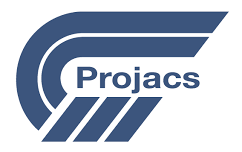
E-Government, E-Archiving and IT Security
Course ID: 2512087101423EGI
Course Dates : 08/12/25 Course Duration : 5 Studying Day/s Course Location: Dubai, UAE
Language: Bilingual
Course Category: Professional and CPD Training Programs
Course Subcategories: Operations and Process Excellence
Course Certified By: * Projacs Academy
* Professional Training and CPD Programs
Certification Will Be Issued From :
KSA
Course Fees: £2,958.13
Vat Not Included in the price. VAT may vary depending on the country where the course or workshop is held.
Click to Pay
Contact us for more information Sales@e-s-hub.com
Course Information
Introduction
The integration of digital technologies into governance has transformed the way public services are delivered, managed, and secured. As governments worldwide strive to enhance efficiency, transparency, and accessibility, the adoption of e-government systems has become a cornerstone of modern administration. These systems not only streamline operations but also empower citizens by providing seamless access to essential services. However, this shift introduces complex challenges, particularly in managing vast amounts of data securely and ensuring compliance with evolving regulations. The course on E-Government, E-Archiving and IT Security addresses these challenges head-on, offering participants a comprehensive understanding of how to design, implement, and maintain secure digital frameworks.
One pressing issue is the gap between technological advancements and the capacity of organizations to adopt them effectively. For instance, many government agencies struggle with outdated legacy systems that hinder interoperability and scalability. This often results in fragmented service delivery and increased vulnerability to cyber threats. By exploring theories such as the Technology Acceptance Model (TAM) and frameworks like COBIT for IT governance, the course equips learners with tools to bridge this gap. Participants will gain insights into aligning technology adoption with organizational goals while mitigating risks associated with digital transformation.
The importance of mastering e-archiving cannot be overstated, given the exponential growth of digital records. Organizations must balance accessibility with long-term preservation, ensuring that critical information remains retrievable and intact over time. A notable example is Estonia’s e-governance model, which has successfully implemented blockchain technology to safeguard sensitive data. Such innovations underscore the need for robust archiving solutions that comply with international standards like ISO 15489. Through this course, participants will learn how to establish and maintain compliant e-archiving systems tailored to their specific contexts.
IT security forms another pillar of the program, addressing the escalating threat landscape faced by both public and private entities. Cyberattacks targeting government databases have surged in recent years, with incidents such as the 2021 Colonial Pipeline ransomware attack highlighting the far-reaching consequences of inadequate cybersecurity measures. Drawing upon frameworks like NIST Cybersecurity Framework, the course delves into proactive strategies for risk assessment, incident response, and continuous monitoring. Participants will emerge equipped to fortify their organizations against emerging threats.
Beyond technical competencies, the course emphasizes the human dimension of e-government initiatives. Effective communication and stakeholder engagement play pivotal roles in fostering trust and driving user adoption. Consider Singapore’s Smart Nation initiative, where citizen-centric design principles have been instrumental in achieving widespread acceptance of digital services. By incorporating lessons from behavioral economics and change management, the curriculum prepares participants to navigate the socio-cultural aspects of implementing e-governance solutions.
Ultimately, professionals who master the content of this course position themselves at the forefront of an increasingly digitized world. They contribute not only to operational excellence within their organizations but also to broader societal benefits such as reduced administrative costs and enhanced civic participation. Whether you represent a government agency seeking to modernize its processes or a private firm supporting public sector clients, this training offers invaluable expertise to propel your career and organization forward.
Objectives
By attending this course, participants will be able to:
Analyze the foundational principles of e-government and evaluate their implications for public service delivery.
Design scalable e-archiving systems that adhere to global best practices and regulatory requirements.
Implement advanced IT security protocols to protect sensitive data and mitigate cyber risks.
Apply frameworks such as COBIT and NIST to assess and improve organizational IT governance.
Evaluate real-world case studies to identify successful strategies for digital transformation in government settings.
Develop actionable plans for engaging stakeholders and promoting user adoption of e-governance platforms.
Synthesize knowledge of emerging technologies, including AI and blockchain, to innovate within the e-government space.
Who Should Attend?
This course is ideal for:
Government officials responsible for digital transformation projects, including CIOs, IT managers, and policy advisors.
Professionals working in records management, archiving, or information governance roles.
IT security specialists tasked with protecting public sector infrastructure from cyber threats.
Consultants and solution architects designing e-government systems for public or private clients.
Academics and researchers exploring the intersection of technology and governance.
These groups will find the course particularly valuable due to its focus on practical applications and compliance with industry standards. While prior experience in IT or public administration is beneficial, the course is structured to accommodate intermediate learners who possess foundational knowledge of digital systems and wish to deepen their expertise.
Training Method
• Pre-assessment
• Live group instruction
• Use of real-world examples, case studies and exercises
• Interactive participation and discussion
• Power point presentation, LCD and flip chart
• Group activities and tests
• Each participant receives a 7” Tablet containing a copy of the presentation, slides and handouts
• Post-assessment
Program Support
This program is supported by:
* Interactive discussions
* Role-play
* Case studies and highlight the techniques available to the participants.
Daily Agenda
The course agenda will be as follows:
• Technical Session 08.30-10.00 am
• Coffee Break 10.00-10.15 am
• Technical Session 10.15-12.15 noon
• Coffee Break 12.15-12.45 pm
• Technical Session 12.45-02.30 pm
• Course Ends 02.30 pm
Course Outlines
Foundations of E-Government
Introduction to e-government models and frameworks.
Key drivers and barriers to digital transformation in public services.
Overview of global trends and success stories (e.g., Estonia, Singapore).
Understanding citizen-centric design principles.
Day 2:
Principles of E-Archiving
Fundamentals of electronic document and records management.
Compliance with international standards (ISO 15489, MoReq2).
Best practices for metadata management and data classification.
Tools and technologies for implementing e-archiving systems.
Day 3:
IT Security Essentials
Threat landscape analysis and common vulnerabilities in e-government systems.
Core components of the NIST Cybersecurity Framework.
Strategies for securing cloud-based and hybrid infrastructures.
Incident response planning and disaster recovery techniques.
Day 4:
Advanced Topics in Governance and Security
Applying COBIT for effective IT governance.
Leveraging AI and machine learning for predictive security analytics.
Blockchain applications in securing e-government transactions.
Ethical considerations in deploying surveillance technologies.
Day 5:
Implementation and Future Directions
Developing a roadmap for e-government transformation.
Engaging stakeholders through participatory approaches.
Evaluating ROI and measuring impact of digital initiatives.
Emerging trends: quantum computing, IoT, and smart cities.



















































